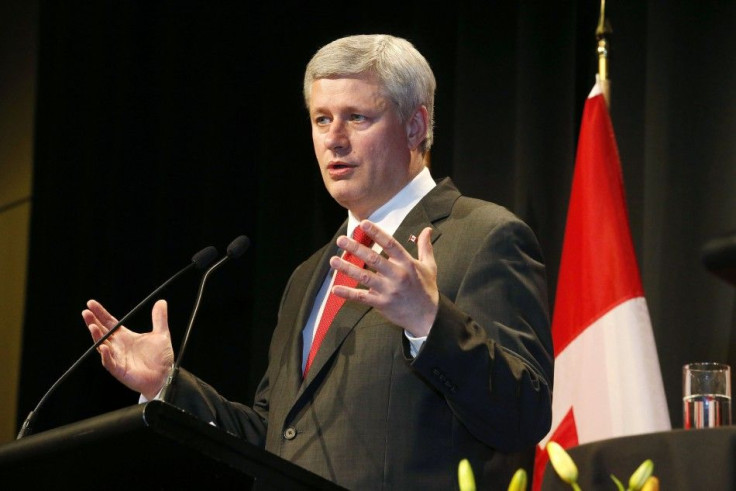Canada’s PM Stephen Harper Defends Income Splitting Plan: Budget Office Raises Concerns of Limited Beneficiaries and Women Quitting Work Force

Canada’s Prime Minister Stephen Harper has defended his government's income splitting plan on the ground that the aim is “to have a fair income tax system that allows people to put more money back in their own pockets.” Unconcerned by the opposition's campaign aginst it, the PM wished political opponents “good luck” if they wanted to campaign against it. The New Democrats and Liberals have already promised to scrap the Conservatives’ income-splitting measure.
Family Tax Cut
The income-splitting plan, described by the Conservatives as Family Tax Cut, has been given a retrospective effect dating back to the 2014 tax year. Its benefits are restricted to $2,000 in tax reductions per annum for households. The benefits are targeted at married couples with children below the age of 18. Under FTC, a spouse can transfer up to $50,000 of taxable income to the lower-earning partner.
When Harper was asked, why the government implemented income-splitting for households despite its narrow base of two million households or 15 percent of Canadian households, the PM cited his government’s goal "to have a fair income-tax system that allows people to put more money back in their own pockets and that’s what we’re committed to doing," reports Toronto Star.
Waste of Money
Opposition parties such as New Democrats and Liberals are opposed to the plan, saying it would cost CA$2 billion a year in foregone revenues and is an utter waste of money. They also point to the fact that beneficiaries are not much. Only 15 percent of families would benefit with no gains going to families with single bread winners or low incomes. Both the parties have promised to scrap the plan if they come to power.
A recent report by the Parliamentary Budget Officer also echoed similar concerns about the plan. It noted the benefit is not exceeding 15 percent of Canadian households. The report also highlighted another concern--its effect on workers, particularly women, who might leave or stay out of the work force.
PBO’s Concerns
The report noted that “FTC eligibility rates for households in the bottom 20 percent of income are near zero.” It noted the possible drain on the workforce with 7,000 full-time jobs being deserted. Since men are the primary breadwinners in 80 percent of Canadian households, the budget office expects women to withdraw from the workforce. “As a result, if you look at it that way, it’s regressive in a sense,” assistant parliamentary budget officer Mostafa Askari told media persons.
Reacting to the report, Employment Minister Pierre Poilievre reaffirmed that the Conservatives’ plan to cut taxes for families remained on track. But, NDP finance critic Nathan Cullen called it “wasteful and ineffective.” Liberal finance critic Scott Brison said anything that costs $2.2 billion and actually hurts jobs and growth is clearly wrong-headed.
(For feedback/comments, contact the writer at kalyanaussie@gmail.com)





















